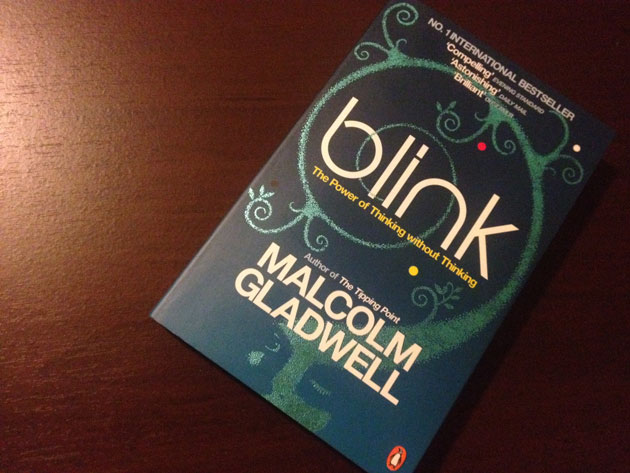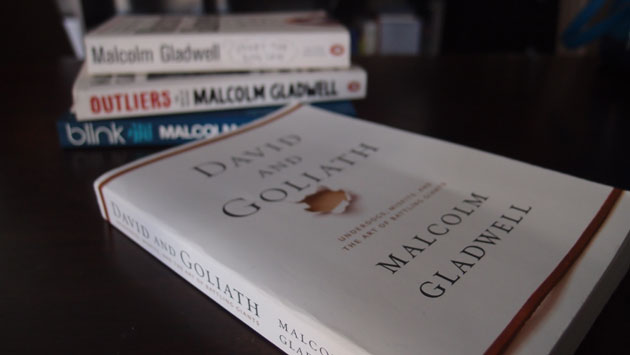Although he’s been a pretty well established author for some time, I only discovered Malcolm Gladwell for myself about a year ago, when I read What The Dog Saw, an eclectic collection of his articles from the New Yorker.
Blink was an earlier book of his, published in 2005 and carries the full title Blink: The Power of Thinking Without Thinking. It’s a pretty dreadful title. Personally, it evokes memories of Curb Your Enthusiasm Season 7 when Jason Alexander authors the book Acting Without Acting.
In Blink, Gladwell explores what the human brain is capable of determining in the blink of an eye. As it turns out, quite a lot. He begins with the story of an American museum that procures a valuable ancient Greek statue. They have carefully checked the statue before buying it from the owner using a variety of techniques including carbon dating the material and checking the history of ownership. And yet despite all their checks and safeguards, an arts expert viewed the statue for a split second and immediately determined it was fake. How did they do it? And what other information are experts in their field able to determine intuitively? How does an expert tennis instructor predict when a player will double fault? How does a police officer know when a perp is reaching for their gun?
As Gladwell is able to do in his own inimitable style, he weaves together a tapestry of tales, each exploring the thinking behind subject matter experts in a range of disciplines – marriage counsellors, tennis instructors, Coca Cola marketers, police officers etc. – and explores what they are able to determine in a split second decision. Gladwell has a knack for making anyone feel like an armchair expert on the topics he discusses. His work is consistently informative and thought provoking. His research into this book uncovers interesting people (a marriage counsellor who, in 15 minutes, can predict whether a couple will stay married with 85% accuracy) and explores interesting concepts (why did New Coke fail? Do you need to be a certain height to be a CEO?)
As it turns out, Gladwell isn’t purporting to claim that everyone becomes an expert in their field and can make accurate split-second decisions. He devotes a chunk of his book to the death of Amadou Diallo, the unfortunate victim of overzealous police officers who shot him 40 times before realising he wasn’t armed. An interesting discovery that Gladwell reports on is that police officers are less inclined to shoot hastily when they work alone. Working with a partner makes them more protective (overprotective?) and likely to shoot a suspect pre-emptively.
I find Gladwell’s work to be endlessly appealling and I can power through his books pretty quickly. Blink is no exception. It’s a breezy holiday read and gives you plenty of weird and wonderful concepts for your brain to digest.
 The FAT Website est. 1999
The FAT Website est. 1999





